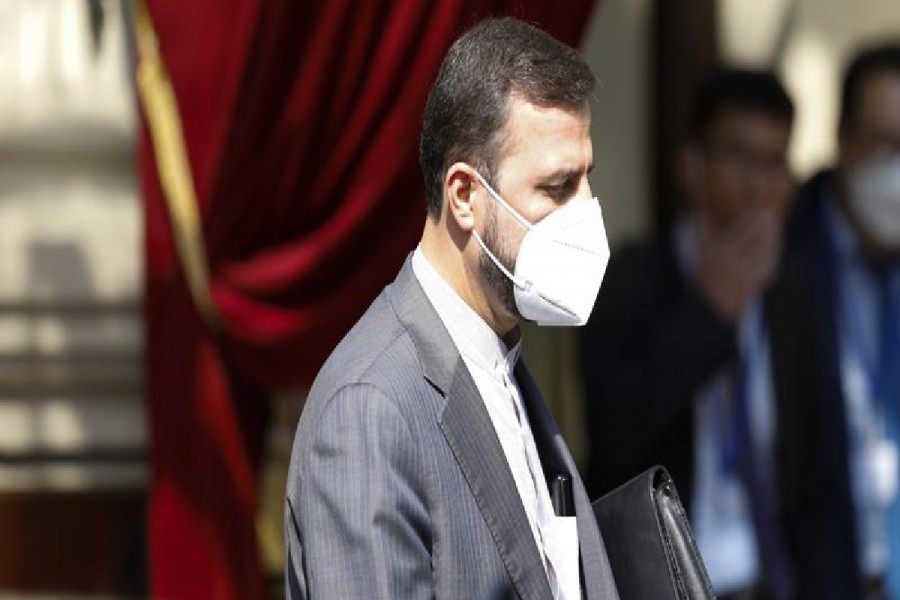High-ranking diplomats from China, Germany, France, Russia and Britain made progress at talks Saturday focused on bringing the United States back into their landmark nuclear deal with Iran, but said they need more work and time to bring about a future agreement.
After the meeting, Russia's top representative, Mikhail Ulyanov, tweeted that members of the Joint Comprehensive Plan of Action, or JCPOA, "noted today the indisputable progress made at the Vienna talks on restoration of the nuclear deal."
"The Joint Commission will reconvene at the end of the next week," Ulyanov wrote. "In the meantime, experts will continue to draft elements of a future agreement."
The US did not have a representative at the table when the diplomats met in Vienna because former President Donald Trump unilaterally pulled the country out of the deal in 2018. Trump also restored and augmented sanctions to try to force Iran into renegotiating the pact with more concessions.
US President Joe Biden wants to rejoin the deal, however, and a US delegation in Vienna was taking part in indirect talks with Iran, with diplomats from the other world powers acting as go-betweens.
The Biden administration is considering a rollback of some of the most stringent Trump-era sanctions in a bid to get Iran to come back into compliance with the nuclear agreement, according to information from current and former US officials and others familiar with the matter.
Ahead of the main talks, Ulyanov said JCPOA members met on the side with officials from the US delegation but that the Iranian delegation was not ready to meet with US diplomats.
The nuclear deal promised Iran economic incentives in exchange for curbs on its nuclear programme. The reimposition of US sanctions has left the Islamic Republic's economy reeling. Tehran has responded by steadily increasing its violations of the restrictions of the deal, such as increasing the purity of uranium it enriches and its stockpiles, in a thus-far unsuccessful effort to pressure the other countries to provide relief from the sanctions.
The ultimate goal of the deal is to prevent Iran from developing a nuclear bomb, something it insists it doesn't want to do. Iran now has enough enriched uranium to make a bomb, but nowhere near the amount it had before the nuclear deal was signed.
The Vienna talks began in early April and have included several rounds of high-level discussions. Expert groups also have been working on how to resolve the issues around the American sanctions and Iranian compliance, as well as the "possible sequencing" of the US return.
Outside the talks in Vienna, other challenges remain.
An attack suspected to have been carried out by Israel recently struck Iran's Natanz nuclear site, causing an unknown amount of damage. Tehran retaliated by beginning to enrich a small amount of uranium up to 60 per cent purity, its highest level ever.


